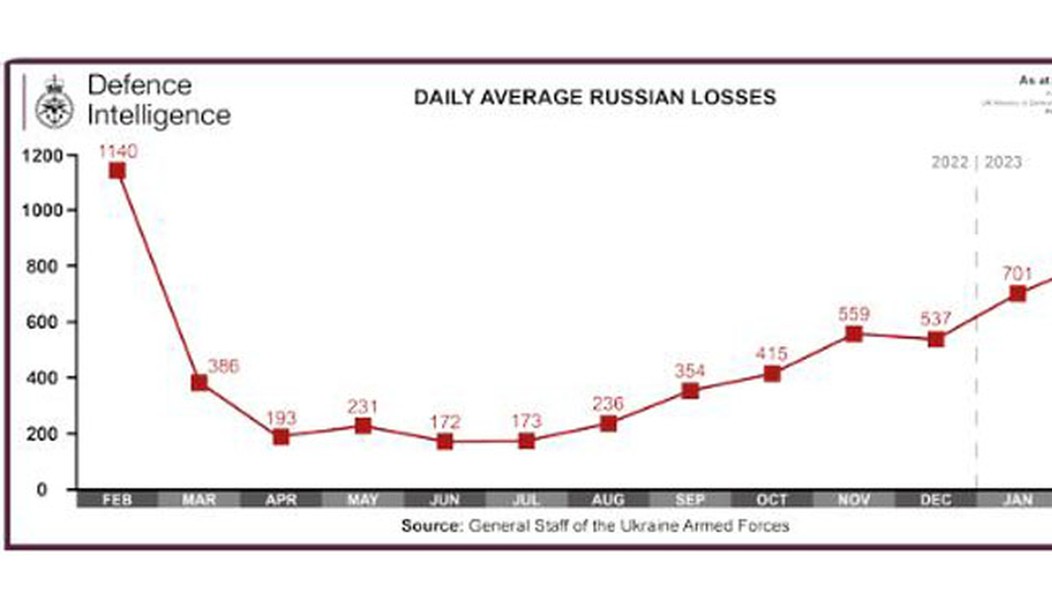The NY Times interviewed Russian mobilized soldiers who’d been captured by Ukraine along the front lines. They tell a consistent story of being sent out in waves by Russian commanders and being quickly cut down only to have another wave sent out minutes later.
Creeping forward along a tree line late at night toward an entrenched Ukrainian position, the Russian soldier watched in horror as his comrades were mowed down by enemy fire.
His squad of 10 ex-convicts advanced only a few dozen yards before being decimated. “We were hit by machine-gun fire,” said the soldier, a private named Sergei.
One soldier was wounded and screamed, “Help me! Help me, please!” the private said, though no help arrived. Eight soldiers were killed, one escaped back to Russian lines and Sergei was captured by Ukrainians.
Sergei and his squad were all recruited from Russian prisons by the Wagner group, a mercenary company which had ties to the Kremlin. They are promised a pardon as well as a job (with Wagner) but the actual work is something like World War I trench warfare. These untrained “soldiers” are told to crawl or charge Ukrainian positions or be shot for disobeying orders:
A private named Aleksandr, 44, who shaved three years off a sentence for illegal logging by enlisting with Wagner, said that before deploying to the front he was told he would be shot if he disobeyed orders to advance.
“They brought us to a basement, divided us into five-person groups and, though we hadn’t been trained, told us to run ahead, as far as we could go,” he said of his commanders.
His dash toward Ukrainian lines in a group of five soldiers ended with three dead and two captured.
The UK Ministry of Defense believes Russian losses over the past two weeks are probably the highest they’ve been since the start of the war.
(1/5) pic.twitter.com/GX1VoJ3PDD
— Ministry of Defence 🇬🇧 (@DefenceHQ) February 12, 2023
But even though the casualties are high, the tactics do sometimes work:
“We see them crawl for a kilometer or more,” toward Ukrainian trenches, then open fire at close range and try to capture positions, Col. Roman Kostenko, the chairman of the defense and intelligence committee in Ukraine’s Parliament, said in an interview. “It’s effective. Yes, they have heavy losses. But with these heavy losses, they sometimes advance.”
Those small advances appear to be piling up near Bakhmut. Yesterday the Wagner group claimed it had taken another village near the town.
The Wagner private military company, whose forces have helped lead the brutal and monthslong Russian campaign to seize Bakhmut, said that its “assault units” had taken the village of Krasna Gora, near the northern edge of the city. The statement was made by the press service of Yevgeny V. Prigozhin, the group’s founder, and included a video purporting to show Wagner fighters at the entrance to the village.
“This is what we have captured,” one fighter is heard saying as an explosion rings out. They will continue on to the next village, he added. There was no immediate comment from Russia’s Defense Ministry, and neither the claim nor the footage could be independently verified.
Statements from Russian sources aren’t always reliable of course but there’s some indication that the Russians are closing in. Today Ukraine announced that aid groups would not be allowed to enter Bakhmut because street to street fighting had broken out.
The Ukrainian Army said that it would no longer allow aid groups in the city because of the danger posed by street fighting. The ban on volunteer access could suggest a prelude to a Ukrainian withdrawal, although the Ukrainian military has insisted it retains control of the city, can resupply troops and can evacuate its own wounded.
After months of withering bombardment, Russian forces, including both regular troops and mercenaries from the Wagner private military company, now appear to have surrounded Bakhmut on three sides. Ukraine’s military said that street fighting had commenced in two neighborhoods, and that the one remaining road that Ukrainian forces use to gain access to the city was under Russian fire…
The decision to close access to the city for aid groups suggests that the Ukrainian military cannot secure even areas in the city that for months had been considered relatively safe, such as neighborhoods on the western bank of the Bakhmutka River, which are farther from the range of Russian artillery strikes. It was yet another indication that Russian forces were edging closer to taking the city.
Russia may soon be trumpeting Bakhmut as a major victory but they almost certainly won’t be talking about the human waves of untrained prisoners who were sent to their deaths to achieve the victory.








Join the conversation as a VIP Member